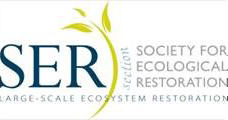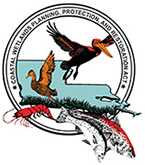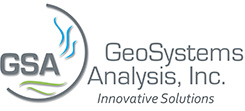Session Themes and Topics
NCER facilitates interaction and dialogue among practitioners of both small and large-scale ecosystem restoration by bringing them together at a single venue. By their very nature, each practitioner brings unique perspectives based on the systems in which they work.
Restoration professionals across the country are invited to assist with developing the NCER program agenda by proposing and organizing sessions related to their expertise. This ensures representation by restoration professionals at every scale, with sessions that are integrative, cross- system, and that promote the transfer of regional-based knowledge to a broad audience. NCER strives to engage multiple perspectives, either across systems / regions or among multiple stakeholders (e.g. federal, state, provincial, non-profit, corporate, etc.). NCER 2018 will also examine the transferability of lessons learned between large- and small-scale restoration programs.
To assist those interested in developing session proposals, we have prepared a broad list of session “themes” as identified in bold below. The bulleted items within each theme are intended to give examples of what types of presentation material may be covered within each specific theme.
This list is also used a guide to help proposal, and eventually, abstract submitters, identify the applicable Theme/Topics during the session proposal and abstract submittal process.
If you are thinking about developing a session, please do not feel limited to these topical areas – NCER seeks to capture all emerging topics and new ideas in ecosystem restoration. Thus, the following list is intended only to serve as a guide when developing session proposals and identifying topical themes during the abstract submittal process. We especially encourage submissions that incorporate the following emergent topics in restoration:
- Cultural and socio-economic impacts
- Engagement of non-traditional partners
- Climate-smart conservation and restoration to achieve ecosystem resilience
- Determining benefits of restoration projects to larger landscapes
- Developing landscape-scale goals and ecological metrics
- Public engagement and education
- Benefits/roles of small and large-scale urban and suburban greening
- Platforms for sharing lessons learned for both successful and unsuccessful restoration projects
We also welcome dedicated session proposals for restoration of similar ecosystems across geographies.
A Call for Proposals will be announced in the coming weeks. In the meantime, we urge you to be thinking about session ideas related to your expertise that would be of benefit to other restoration professionals.
Key Themes and Subtopics
- Linking science to decision-making
- Science and decision-making collaboration
- Science governance
- Promoting actionable science
- Options for formal decision making processes (e.g., Structured Decision Making)
- Use of benefit-multiple impact analysis as a decision-making tool
- Valuation of restoration socio-economic benefits
- Making large-scale ecosystem restoration program implementation sustainable
- Stable funding mechanisms
- Long-term funding requirements and their value for planning, implementation, monitoring, and adaptive management
- Creating ecosystem restoration markets to attract private enterprise interest
- Incentives for local landowners and partners to partner with governments on ecosystem restoration efforts
- Improving implementation accountability
- More sophisticated approaches to communications
- Engagement of non-traditional conservation partners
- Adapting to emerging ecosystem-scale stressors (including but not limited to climate change, sea level rise, extreme weather events, invasive species, etc.)
- Planning for, measuring, and achieving ecosystem resilience
- Building flexibility and responsiveness into planning
- Learning from industry and/or non-traditional restoration businesses and programs
- Developing proactive approaches to address emerging issues
- Defining and understanding principles of adaptive management and adaptation planning
- Implementation of climate-smart adaptation
- Science tools, synthesis, and application in support of restoration implementation
- Restoration vision and performance measures
- Isolated project contributions to landscape-scale goals
- Prioritizing restoration projects and funding in support of restoration implementation
- Tools to support restoration implementation accountability and assessment
- Measuring restoration progress made towards restoration end goals
- Ecosystem monitoring and data management – essential tools for ecosystem restoration
- Development and tracking of landscape-scale indicators of ecological condition
- Improving restoration communication, partner engagement, and conflict resolution capacity throughout all levels of government
- Communicating the need for and importance of restoration
- Science communication to decision-makers, partners, and public
- Communication, partner engagement, and conflict resolution capacity building and training
- Valuing ecosystem benefits – ecosystem services including cultural and socio-economic values, predicting restoration benefits
- Showcasing the value of ecosystem restoration to non-technical audiences
- Building capacity for large-scale restoration planning with implementation at multiple scales and sectors.
- Defining restoration problems, opportunities, and realistic goals and objectives
- Regulatory frameworks for scalable solutions, actions by multiple sectors
- Developing and leveraging collaborative restoration partnerships
- Using “small-scale” projects and pilot projects to inform large-scale restoration
- Forums for intergovernmental and non-governmental dialogue to support large-scale restoration planning
- The state of the science in ecosystem restoration
- Nutrient reduction case studies for freshwater and marine environments
- Invasive species impacts
- Natural abiotic and biotic processes versus acceptance of novel ecosystems
- The role of urban and suburban infrastructure greening
- Water quality and water quantity issues in ecosystem restoration
- Successes and failures of the adaptive management model in ecosystem restoration
- Transferring lessons learned across ecosystems and/or regions
- Watershed based restoration programs – the trend of the future?
- The power of models – Considerations of the balance between detail and uncertainty in the predictions of ecosystem restoration program outcomes
- Defining “large-scale” ecosystem restoration – how many small projects make one big program?
- Ecosystem restoration as tool for enhancing resiliency
- Use of restored ecosystems as natural infrastructure to reduce risk from sea level rise
- The application of green infrastructure to enhance resiliency in urban environments
- Linkages between ecosystem restoration and coastal resiliency
- Linkages between ecosystem restoration and global warming
- Can ecosystem restoration be used to reduce impacts of climate change?
- Modeling and forecasting as tools to predict the effects of large-scale ecosystem restoration on regional impacts of climate change
- Current challenges for ecosystem restoration in today’s economic and political landscape
- Impacts of reduced federal / state funding for large-scale ecosystem restoration programs
- A regional comparison of government support and funding for ecosystem restoration initiatives
- Examining the role of government agencies, non-profit organizations, and private corporations in large-scale ecosystem restoration
- How to increase effectiveness of science, policy, and implementation of ecosystem restoration programs in the face of decreasing budgets
- Public-Private Partnerships – a new approach to implementing ecosystem restoration projects?
- New challenges and opportunities arising from emerging federal and state legislation for ecosystem restoration
- The importance of context for driving political and social support for ecosystem restoration
- Ecosystem-based technical sessions
- Estuaries
- Coasts
- Rivers and streams
- Riparian areas
- Woodlands
- Others
Hosting Organizations
Platinum Sponsor
Partnering Organizations
Tweets by @NCERConference









